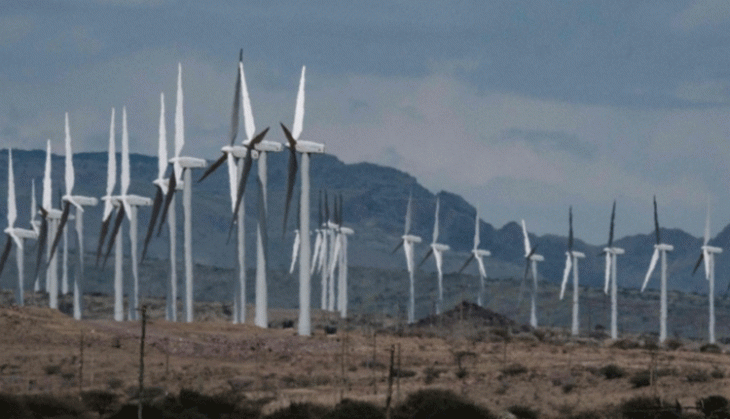Lake Turkana Wind Power faces storms in title tussle
By Bernice.Mbugua, November 2, 2021Lake Turkana Wind Project is facing headwinds after a three-Judge Bench sitting in Meru ruled that 150,000 acres of land were acquired illegally for the Loiyangalani based project.
The wind farm is located in Kenya’s Turkana wind corridor which has very strong winds traveling between Mount Kulal to the north and Mount Nyiru to the south, creating an ideal flow to generate power from 365 wind turbines.
According to Justices Peter Muchoki Njoroge, Yuvinalis Angima and Grace Kemei the land which belonged to the community was set aside in an irregular, unlawful and unconstitutional manner.
The Judges however declined to nullify the Sh70 billion project but instead gave the Marsabit County government, the Attorney-General, the Chief Land Registrar and the National Land Commission one year to regularize the process.
“The defendants are granted one year to strictly comply with the existing law on setting apart, failure to which the titles will stand cancelled and the suit land shall revert to the community,” ruled the Judges.
Central to survival, livelihoods
The suit was filed in 2014 by Mohamed Itarakwa, Kochale Jomo Jale, Issa Jitengwe Gambare, and David Tomasot Arakhole, who sued on behalf of residents of Laisamis Constituency and Karare Ward in Marsabit County.
They had filed the suit claiming land rights within Laisamis Constituency and Karar Ward in Marsabit arguing that the land is central to their survival and livelihood as it is their cultural, ancestral and grazing land held under an intergenerational trust for the future generations.
They sued Lake Turkana Wind Power Limited, Marsabit County Government, the Attorney General, Chief Land Registrar, and the National Land Commission.
The ruling puts Lake Turkana Wind Power farm on the spot despite it 365 turbines with a capacity to dispense 310 megawatts of reliable, low-cost energy to Kenya’s national grid.
While noting that the land was illegally acquired, the Judges noted that the process of conversion of public land or land held in trust to private land must be beyond reproach.
“The court is satisfied that the due process was not followed by the Marsabit County Government in setting apart the suit property,” the Judges ruled.
“Failure to comply with the constitutional and statutory provisions on setting a part of trust land cannot be excused on account of public interest, legitimate expectation, government policies and practice or any other ground,” they said.
The Judges further noted that there was no Divisional Board in place at the material time and even the defendants had conceded that the prescribed process was not followed due to the absence of the Divisional Board.
“No explanation was given as to why the relevant minister responsible for lands did not appoint the Divisional Board,” they noted.
Blatant violation
Though the project has generated employment opportunities for some residents of Marsabit County and other socio-economic benefits, judges said, they do not justify the blatant violation of the law.
Nambuye, Laibuta and Karanja however noted that it was still possible to comply with the law and still enjoy any benefits which may accrue from the project as the project is already complete and functioning.
They declined to issue compensation to the petitioners noting that it would be premature at this stage and the matter should be left to the organs and institutions entrusted with the task under the law.
The petitioners had claimed that part of the area alienated to the Lake Turkana Wind Power was used to perform cultural rites such as Galgulame ceremonies and that the suit land is used as livestock and camel access to the Lake Turkana Waters.
The company argued that it holds a 33-year lease over the said property which it acquired through a lawful and legal process and as such its property rights as a private investor is entitled to protection under article 40 of the constitution.
They alleged bad faith faulting the plaintiffs for the delay in filing the suit while they were aware of the same since the inception of the project, seven years ago.
Marsabit County Government on its part claimed the alienation of the suit land was lawful and complied with the Trust Land Act.
It was of the firm view that the affected communities were involved in the public participation and approved the process and the project.
The judges in their Judgement noted that though the law requires that irregularly issued titles be canceled, they were not inclined to nullify a completed project.
The power firm is among the cheaper power producers in Kenya and is also embroiled in credibility issues after it emerged that independent power producers are being paid more than government-owned producer Kengen.
It has also emerged that electricity consumers are paid the wind firm billions of shillings despite the late completion of a high voltage transmission line.
The president has declared Kenya Power a special government project as investigative agencies move to unearth extent of the rot at the company which buys power from producers who include Lake Turkana Wind Power.
